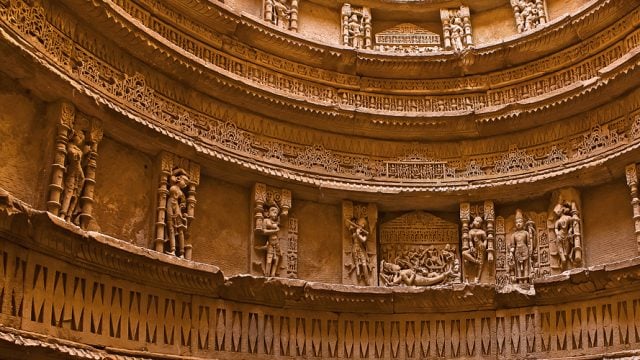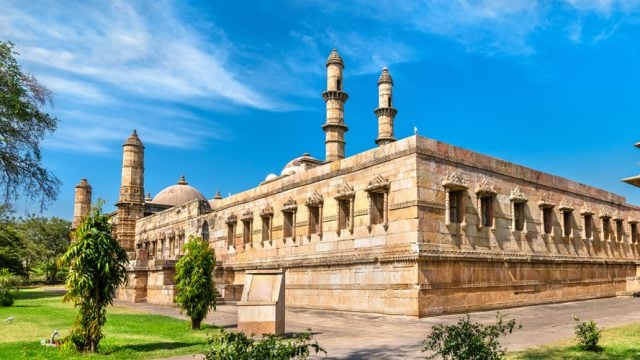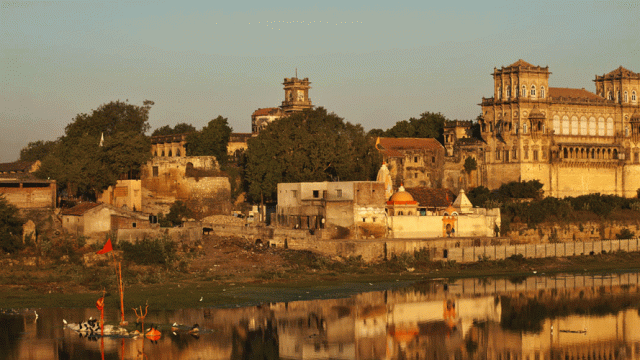Vechaar Utensils Museum, Ahmedabad A visit to the Vechaar (Vishalla Environmental Centre for Heritage
Auto World Museum, Ahmedabad
Love vintage cars? Then a visit to the Auto World Museum in Ahmedabad is a must. The museum was established by the late Pranlal Bhogilal, one of India’s famous car collectors. The cars are displayed across a huge area in his Dastan Estate. There are Rolls-Royce, Bentley, Daimler, Langonda, Mercedes, Maybach, Packard, Cadillac, Buick, Auburn, Cord, Lancia, Lincoln, Chrysler, etc. You will find Limousines and Grand Open Tourers for ceremonial occasions, convertible cars used for evening drives, station wagons shaped like a boat as well as a horse drawn carriage, etc. Nearly all of them were built to individual specifications by famous car makers from across the globe. Ticketed entry. There is a souvenir shop and a cafeteria. Check for timing. Contact: +91-79-22820699.

Calico Museum of Textiles and Sarabhai Foundation Collections, Ahmedabad
The Calico Museum of Textiles, housed in The Retreat (Sarabhai Foundation) in the Shahibaug area, offers a journey through the different aspects of Indian textiles. There are two wings here – the ‘Haveli’ showcases religious textiles, as well as south Indian bronzes, Jain art, and Mughal and other miniature paintings; the ‘Chauk’ displays royal tents, carpets, furnishings and costumes of the Mughal and regional courts; textiles for India’s export trade; as well as a wide range of regional ethnographic textiles. Gallery entry is free (museum is closed on Wednesdays and public holidays). You can also pre-register for a guided tour (10.30m to 1pm) but it is restricted to 20 people only. The museum has many do’s and don’ts, such as children below 10 years of age are not admitted on the museum tour; no handbags/baggage, cameras or mobile phones allowed in the premises; no photography/videography allowed, etc. http://calicomuseum.org
Maharaja Fatesingh Museum, Vadodara
Even if you have seen the private collection of Indian maharajahs elsewhere in India, the collection at Vadodara’s Maharaja Fatesingh Museum will still surprise you. Located in the Lakshmi Vilas Palace compound, the museum houses objects collected by the Gaekwads of Baroda, especially Maharaja Sayajirao Gaekwad III (1875-1939). Paintings by Raja Ravi Verma, paintings and sculptures by Venetian artist Fellicci, Japanese and Chinese porcelains, Greek and Roman sculptures, 18th century French furniture, etc. are some of the eye-catching displays here. There is also a dedicated head gear gallery. The museum (closed on Mondays and public holidays) is open from 10am to 5pm. Ticketed entry. Contact: +91-8511179951/+91-2652426372

Kutch Museum, Bhuj
If you are keen about regional history, then Kutch Museum in Bhuj will be of interest to you. Housed in a Gothic-style building, it contains some rare artefacts among others, such as Kshatrapa inscriptions (1st century AD), extinct Kutchi script, kori – once the local currency, etc. There are also displays on tribal and folk crafts. The display on local Kutchi embroidery is interesting. The Museum is closed on Wednesdays. On other days, check for opening hours. Contact: 91- 9675796178
museum tour
travel
culture





